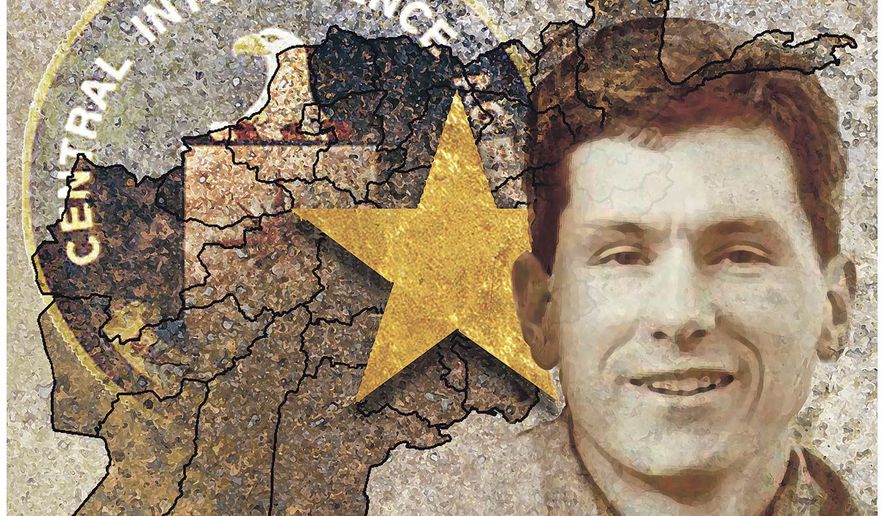OPINION:
When I served in the CIA, I became accustomed to looking over at the stars on the memorial wall commemorating our fallen heroes each time I entered and departed CIA Headquarters.
Although I was personally acquainted with very few of those brave patriots who made the ultimate sacrifice on behalf of our grateful nation, their legacies shaped and defined my career and the careers of so many of my colleagues throughout the intelligence community.
I never met Marine Corps officer and CIA paramilitary Case Officer Mike Spann, the first American killed in combat in Afghanistan in the U.S. launched Operation Enduring Freedom in October 2001 against the Taliban and al Qaeda. But I was deeply knowledgeable of Mr. Spann’s sacred mission, especially through my friendship with now-retired CIA officer Dave Tyson.
Mr. Spann and Mr. Tyson were part of the eight-man “Team Alpha,” the first Americans to fight behind Taliban enemy lines after the September 11 terrorist attacks. J.R. Seeger led Team Alpha with his deputy Alex Hernandez. Members of the team included CIA Officer Scott Spellmeyer, who had fought as a US Army officer in the Battle of Mogadishu; CIA Medic Mark Rausenberger; Green Beret Capt. Justin Sapp; and “Andy,” whose last name is still classified because he is still actively serving in the CIA.
The heart-stopping, inspiring account of Mr. Spann, Mr. Tyson and their fellow American heroes is poignantly recounted in Toby Harnden’s new “First Casualty: The Untold Story of the CIA mission to Avenge 9/11.”
CIA officers learn during their basic training that they control very little beyond their own preparation. In contrast to the U.S. military, whose primary mission often entails shaping or controlling the battlespace, CIA case officers are trained to recruit spies and steal secrets by immersing themselves in overseas environments and exploiting their adversaries’ blind spots.
With near-native Uzbek language skills as well as fluent Russian, Turkish, and Turkmen, Mr. Tyson established deep rapport and trust with Afghanistan’s Northern Alliance leaders, including Abdul Rashid Dostum.
On November 25, 2001, Mike Spann and Dave Tyson were collecting intelligence on terrorist threats from the roughly 400 al Qaead detainees at Qala-i-Jangi, a historic fort in Mazar-i-Sharif. Back home, the Bush administration was searching for the perpetrator of anthrax attacks, which began a week after 9/11, and wading through a dizzying array of intelligence on emerging al Qaeda terrorist threats.
On that day there was arguably no more important mission for the CIA than Mr. Spann and Mr. Tyson’s interrogation of hardened al Qaeda fighters, some of whom had received training in toxins and chemical weapons in the terror groups Afghanistan-based training camps.
Mr. Spann spotted one particular high-value detainee, John Walker Lindh, the American who moved to Afghanistan and trained at al Qaeda’s infamous al Farouq training camp, which at least seven of the 9/11 hijackers had also attended. Weeks before the 9/11 attacks, Mr. Lindh had reportedly met with Osama bin Laden and learned of the planned attacks on the U.S. homeland.
Mr. Harnden makes a significant contribution to our understanding of CIA’s impact on the war and on the events of that fateful November day, when al Qaeda detainees attacked and killed Spann. Based on interviews with those present at the fort, including two doctors who witnessed Mr. Spann’s final moments, the author recounts how Mr. Spann heroically defended himself against impossible odds and Mr. Tyson fought his way to safety after first trying unsuccessfully to save his colleague’s life.
It was a tragic loss for our country, but, as Mr. Spann’s wife Shannon has emphasized, we should admire Mr. Spann most of all for how he lived. He embodied the best of what CIA officers strive for — an ethos to collect intelligence to protect our country even while putting oneself in harm’s way. Mr. Spann was a role model for me during the three years I spent serving alone in war zones in the Middle East and South Asia. The lessons he taught me: Remember we are deployed to preempt threats before they are visited on our shores. Take care of our people. Respect their sacrifices and those of their families.
As one of my mentors used to say, “The secret of our success at CIA is the secret of our success.” CIA officers most often serve their country anonymously, in the shadows, doing work that can never be talked about but which is crucial to keeping our nation safe.
Mr. Harnden deserves kudos for lifting the veil on this amazing mission and shining the spotlight with grace and historical accuracy on Mike Spann, Dave Tyson and their fellow courageous Alpha Team members, who infiltrated Afghanistan to take the fight to the enemy 36 days after 9/11 and will forever inspire those who follow in their footsteps.
• Daniel N. Hoffman is a retired clandestine services officer and former chief of station with the Central Intelligence Agency. His combined 30 years of government service included high-level overseas and domestic positions at the CIA. He has been a Fox News contributor since May 2018. Follow him on Twitter @DanielHoffmanDC.




Please read our comment policy before commenting.